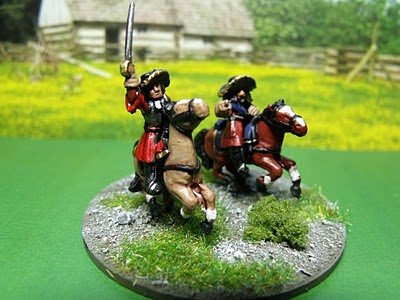Myself and the usual cronies Fran, LINK, Postie and Richard drove down to Tonbridge to spend our hard earned pennies at Cavilier in Tonbridge, we made quite good time arriving in around 35 minutes from sunny Gravesend. There we met up with fellow blogger Big Lee, (who has beat me to the punch with his photo's of the show!) LINK.We all spent far too much money, I picked up a small pre-order of some extra command figures for the 15mm NYW project from Essex miniatures, a few paints, which I could actually see, for some miraculas reason the managment at the Angel Centre turned off the god awful yellow lights that used to blight the show, so for the first time in a couple of years I didn't get a headache after walking around for several hours straining my eyes to see!! I also bought a copy of Sharpe Practice, rules for large skimishes games, hopefully to use with my 15mm FIW figures. After the show we all headed for Fran's, for a Zombie game after sampling the delights of his fridge, his good lady indoors had made a large plate of cheese and ham rolls, which didn't last that long, but we forgot to eat the cake she made!! I sure Fran made up for our mistake, stuffing his face while watching the TV last night, although he will no doubt deny all knowledge of the said cake!. Anyway I took a few photo's of the show which are below, I also took some photo's of the Zombie game we played, I'll post them another day.
Sgts' Mess had my first purchase of ther day, a beacon fire, which I'll use to burn alive the redcoated English in the French Indian Wars
 |
| The Lance and Longbow Socity |
 |
| Aaahhh!! BigLee & Fran |
 |
| Three photo's of the great looking WWII game by Loughton Strike Force, Budapest 1945 |
 |
| The Battle of Grunwald by Crawley Wargames Club |
A FIW skirmish game from the jolly good chaps from the Royal American 60th foot reinactment society, who hopefully will be sending me a copy of the rules.
 |
| A skirmish at Ngoway's Kraal Anglo-Zulu War 1879 |













































